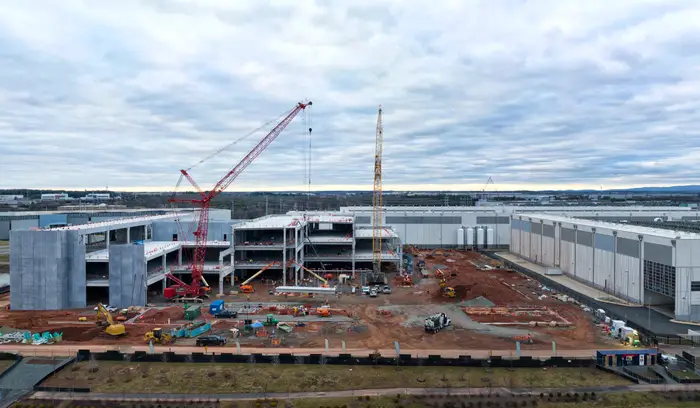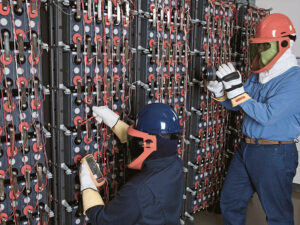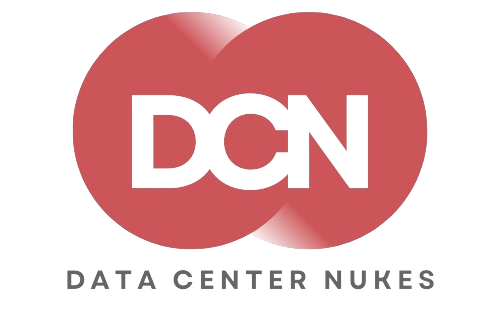Matt Anderson, a former Navy nuke, shares his unique experiences working in data centers across the United States, Sweden, Ireland, and Denmark. We talk about transitioning to international data center roles, cultural and salary differences, how to land one of these roles, and some general advice for living and working overseas.
Transitioning to International Role
Matt’s path to international work wasn’t planned from the outset. He began his career with Amazon Web Services (AWS) in Seattle, but his ambition to live abroad eventually led to opportunities overseas:
“The way that we have actually wound up with our first international opportunity was kind of random, to be honest with you… my wife and I had always kind of dreamed of living abroad, but there was no intention.”
“There is never a clear cut… pathway to get overseas by any means, especially when I accepted the role in Seattle. But yeah, big international companies… they’re all all over the world, right?”
Matt also talked about the importance of networking and expressing interest in international opportunities to managers: “I literally texted my wife that day and said, How do you feel about Sweden? And she was like, Sure. And I was like, okay, apply.”

Language and Cultural Challenges
While English is often the common language in international data centers, Matt stresses the value of learning the local language:
“I highly, highly, highly recommend that you take the opportunity to put in the effort. You may never be perfectly fluent in the language, but it goes a lot further and helps with the assimilation portion of the flow of the international, that’s for sure.”
“My biggest regret from my time in Sweden was not putting in the effort to learn the language. You can kind of become a little isolating, right?”
Adapting to different cultures and systems can be challenging:
“Everything is completely different, right? The medical systems are completely different. How you actually set up appointments is completely different. So learning how to actually function and do those things that you just kind of take for granted done.”


Professional Growth and Diverse Perspectives
Working internationally provides unique opportunities for professional development and exposure to diverse perspectives:
“It gives you a lot of other diverse perspectives… it challenges me to think in different ways. And also not only that, but it helps me become a more effective communicator and a better leader, because it’s not just, hey, I’m working with a bunch of people who come from the exact same background as me.”
Matt’s career has evolved from technical roles to more process-oriented positions:
“The new role is actually more geared towards kind of the process aspect of things… So the idea is you have more efficiencies and you don’t end up with everybody doing things their own way and not having lessons learned shared across sites.”
Differences in Data Center Operations
Matt notes that data center operations can vary significantly between countries:
“I would say that Europe in general is probably a lot more intense when it comes to documentation, especially around safety related things… Every piece of work that’s done in Ireland, you have to have a full risk assessment completed.”
“My experience here in Denmark has been much different and it’s much more logical, like, okay, this is actually makes sense to do this or is it like is there no risk that we just proceed and do it and we move on with our lives?”
Financial Considerations
Working internationally can have financial implications:
“When I moved from Seattle to Sweden, I took a pretty significant pay cut. And when I moved from I was living in Utah, working for Marta first and then moved to Ireland. And I took a pretty significant pay cut both of those times.”
However, Matt notes that there can be compensating factors:
“A lot of countries in Europe spending on what your skill set is. If you have kind of a highly sought after job, it’s hard for them to fill that. One of the enticing things is that they’ll give you tax breaks.”
Advice for Transitioning Navy Nukes
For those transitioning from the Navy to the data center industry, Matt offers valuable advice:
“Don’t go chasing qualifications that you don’t ever intend on using except for trying to work in your resume. If you’re not going to have I can tell you about this story and this happened and this is my response and this is why to go along with it.”
“Focus your efforts on increasing your level of knowledge for whatever path you’re trying to go to.”
He also emphasizes the importance of seeking advice from those who have already made the transition:
“Make sure you’re not just narrow minded with who you’re talking to for advice. There’s a lot of help out there… There’s a ton of us out there that have made the transition and are more than happy to help.”
Matt’s journey through international data center roles demonstrates the diverse opportunities available in the global IT infrastructure industry. While there are challenges in adapting to new cultures and work environments, the experience offers unique professional growth and personal enrichment. For those considering a similar path, Matt’s advice to focus on gaining relevant knowledge, being open to opportunities, and seeking guidance from experienced professionals can be invaluable.
